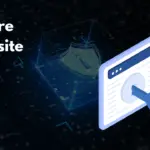Landing your dream website can feel like navigating a complex maze, especially with the ever-evolving landscape of web development. But fear not! This comprehensive guide serves as your compass, pointing you toward the most valuable website development resources available. Whether you’re a budding entrepreneur building your first online store or a seasoned developer seeking to expand your skillset, understanding the best tools, platforms, and learning materials is crucial for success. Let’s dive in and equip you with the knowledge to build a website that not only looks great but also drives results.
Understanding Your Website Development Needs
Before jumping into specific resources, it’s vital to understand your project’s scope and requirements. This foundational step will help you choose the right tools and avoid wasting time and money on features you don’t need.
Defining Your Website Goals
- Purpose: What is the primary goal of your website? (e.g., selling products, generating leads, providing information).
- Target Audience: Who are you trying to reach? Understanding your audience will inform your design, content, and overall strategy.
- Features: What functionalities are essential? (e.g., e-commerce, blog, contact form, user accounts).
- Budget: How much are you willing to invest in website development?
- Timeline: When do you need the website to be launched?
Choosing the Right Approach: DIY vs. Hiring a Professional
You have two primary paths: building the website yourself or hiring a web development professional. Each has its pros and cons:
- DIY (Do-It-Yourself):
Pros: Cost-effective, full control over design and functionality, valuable learning experience.
Cons: Time-consuming, requires technical skills, potential for errors if not experienced.
- Hiring a Professional:
Pros: High-quality results, expert guidance, saves time and effort.
Cons: More expensive, requires careful selection of a reputable developer or agency, less direct control over the process.
For example, a small business owner with limited technical skills and budget might opt for a DIY approach using a website builder like Wix or Squarespace. On the other hand, a large corporation with complex requirements would likely hire a professional web development agency.
Website Builders: Empowering Non-Technical Users
Website builders are user-friendly platforms that allow you to create a website without coding knowledge. They provide drag-and-drop interfaces, pre-designed templates, and various features to simplify the website creation process.
Popular Website Builders
- Wix: Known for its highly customizable drag-and-drop editor and extensive app market. Great for small businesses and portfolio websites.
- Squarespace: Offers elegant and professional templates, making it a strong choice for creatives and businesses focused on aesthetics.
- Weebly: Simple and easy to use, ideal for beginners and those looking for a quick website solution.
- Shopify: Specifically designed for e-commerce, providing all the tools needed to sell products online. According to Statista, Shopify is the leading e-commerce platform in the US as of 2023, powering over 31% of all websites using e-commerce technologies.
- WordPress.com: A hosted version of the popular WordPress platform, offering a simplified website-building experience. Note that this is different than WordPress.org, which requires self-hosting (discussed below).
Benefits of Using Website Builders
- Ease of Use: Drag-and-drop interfaces require no coding skills.
- Templates: Professionally designed templates provide a starting point for your website.
- Affordability: Typically offer monthly subscription plans, which can be more budget-friendly than hiring a developer.
- All-in-One Solution: Handle hosting, security, and updates, freeing you from technical complexities.
- Actionable Takeaway: Explore free trials of different website builders to find the platform that best suits your needs and technical skills. Consider the features you need, the design aesthetic you prefer, and the platform’s ease of use.
Content Management Systems (CMS): For Greater Control and Scalability
Content Management Systems (CMS) offer more flexibility and control than website builders, making them suitable for complex websites with dynamic content.
Leading CMS Platforms
- WordPress.org: The most popular CMS in the world, powering over 43% of all websites (according to W3Techs). It’s open-source, highly customizable, and offers a vast library of plugins and themes. However, it requires self-hosting and more technical knowledge than website builders.
- Joomla: Another open-source CMS, known for its powerful features and flexibility. It’s often used for complex websites with custom functionalities.
- Drupal: A robust and secure CMS, favored by government organizations and large enterprises. It requires significant technical expertise.
Advantages of Using a CMS
- Flexibility and Customization: Adapt your website to your specific needs with themes and plugins.
- Scalability: Easily add new features and content as your website grows.
- Content Management: Streamline content creation and organization with user-friendly interfaces.
- SEO-Friendly: Optimized for search engines with built-in tools and plugins.
- Example: A blog owner might choose WordPress due to its extensive blogging features and SEO plugins. An online magazine might opt for Joomla for its advanced content management capabilities. A government agency might choose Drupal for its security features.
Web Development Frameworks: Building Custom Web Applications
Web development frameworks provide a structured foundation for building complex web applications from scratch. They offer pre-built components, tools, and best practices to streamline the development process.
Popular Front-End Frameworks
- React: A JavaScript library for building user interfaces, developed by Facebook. Known for its component-based architecture and efficient rendering.
- Angular: A comprehensive framework developed by Google, offering a structured approach to building complex web applications.
- Vue.js: A progressive JavaScript framework that is easy to learn and use, making it a popular choice for single-page applications and interactive components.
Popular Back-End Frameworks
- Node.js: A JavaScript runtime environment that allows you to run JavaScript on the server-side. Commonly used with frameworks like Express.js for building scalable and performant APIs.
- Django: A high-level Python web framework that encourages rapid development and clean, pragmatic design.
- Ruby on Rails: A Ruby web framework that follows the convention-over-configuration principle, making it easy to build web applications quickly.
When to Use a Framework
Frameworks are ideal for:
- Building complex web applications with custom functionalities.
- Creating highly interactive and dynamic user interfaces.
- Developing scalable and maintainable codebases.
- Working collaboratively on large projects.
Using a framework requires programming knowledge, so it’s typically used by experienced developers.
Learning Resources: Mastering Web Development Skills
Whether you choose to DIY or collaborate with professionals, continuous learning is key to staying ahead in the ever-evolving world of web development.
Online Courses and Tutorials
- Codecademy: Offers interactive coding courses for beginners, covering various web development technologies.
- Coursera: Provides university-level courses and specializations in web development, taught by leading experts.
- Udemy: Offers a wide range of web development courses, from beginner-friendly introductions to advanced topics.
- freeCodeCamp: A non-profit organization that provides free coding courses and certifications, helping aspiring developers land their first jobs.
- MDN Web Docs (Mozilla Developer Network): A comprehensive resource for web developers, providing documentation, tutorials, and examples for HTML, CSS, JavaScript, and other web technologies.
Books and Documentation
- “HTML and CSS: Design and Build Websites” by Jon Duckett: A visually appealing and easy-to-understand guide to HTML and CSS.
- “JavaScript and JQuery: Interactive Front-End Web Development” by Jon Duckett: A comprehensive guide to JavaScript and jQuery, covering everything from basic syntax to advanced techniques.
- Official Documentation: Always refer to the official documentation for the specific technologies you are using.
Communities and Forums
- Stack Overflow: A question-and-answer website for programmers, providing solutions to common coding problems.
- GitHub: A platform for hosting and collaborating on code, allowing you to learn from open-source projects and contribute to the community.
- Reddit: Subreddits like r/webdev and r/learnprogramming offer a supportive community for web developers of all skill levels.
- Practical Tip:* Start with the fundamentals (HTML, CSS, JavaScript) before diving into frameworks or advanced topics. Focus on building small projects to practice your skills and solidify your understanding.
Conclusion
The world of website development resources is vast and constantly evolving. By understanding your website needs, exploring the available tools and platforms, and investing in continuous learning, you can create a website that meets your goals and effectively reaches your target audience. Whether you choose a DIY approach with a website builder or leverage the power of a CMS and a professional developer, the key is to be informed, strategic, and adaptable. Embrace the journey, experiment with different resources, and build a website that truly represents your brand and delivers value to your users.


